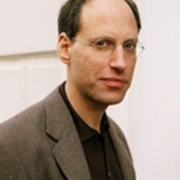Darian Leader
Author of Introducing Lacan
About the Author
Darian Leader is a psychoanalyst practising in London. He is a member of the Centre for Freudian Analysis and Research and of the College of Psychoanalysts - UK. He is the author of Why Do Women Write More Letters Than They Post?, Promises Lovers Make When It Gets Late, Freud's Footnotes and show more Stealing the Mona Lisa, and co-author, with David Corfield, of Why Do People Get Ill'. show less
Image credit: Darian Leader
Works by Darian Leader
¿Por qué no podemos dormir? : nuestra mente durante el sueño y el insomnio (2019) 3 copies, 2 reviews
Leader (Angel Paws) 2 copies
Qu'est-ce que cache le sexe? 1 copy
Associated Works
Tagged
Common Knowledge
- Birthdate
- 1965
- Gender
- male
- Nationality
- UK
- Birthplace
- California, USA
- Places of residence
- Cambridge, Cambridgeshire, England, UK
London, England, UK
Paris, France - Occupations
- psychoanalyst
- Organizations
- Centre for Freudian Analysis and Research (CFAR)
Members
Reviews
Lists
Deathreads (1)
Awards
You May Also Like
Associated Authors
Statistics
- Works
- 49
- Also by
- 1
- Members
- 1,103
- Popularity
- #23,301
- Rating
- 3.5
- Reviews
- 21
- ISBNs
- 93
- Languages
- 11













